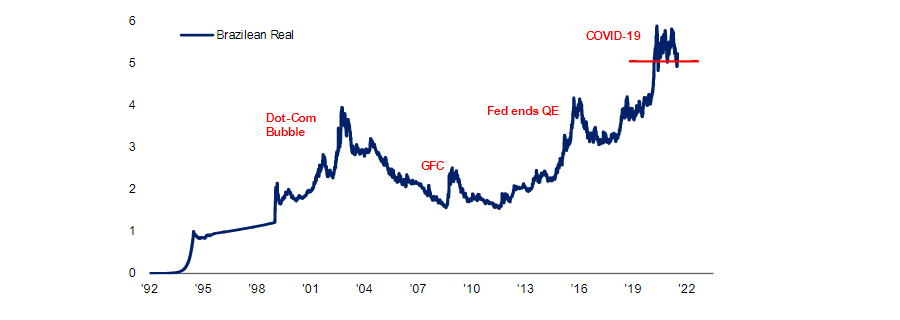The China Factor: Analyzing The Struggles Of BMW, Porsche, And Other Automakers

Table of Contents
Intense Domestic Competition
The rise of powerful and technologically advanced Chinese automakers presents a significant threat to established international brands. This intense domestic competition is a key aspect of the China factor.
Rise of Local Brands
Chinese brands like BYD, NIO, and Xpeng are rapidly gaining market share, leveraging several key advantages:
- Superior understanding of local consumer preferences: These brands deeply understand the nuances of the Chinese market, tailoring their products and marketing strategies to resonate with local consumers. This includes understanding preferences for specific features, design aesthetics, and branding.
- Aggressive pricing strategies: Domestic brands often offer highly competitive pricing, undercutting foreign competitors and making their vehicles more accessible to a wider range of consumers. This aggressive pricing is fueled by government support and economies of scale.
- Rapid technological innovation (especially in EVs): Chinese automakers are at the forefront of electric vehicle (EV) technology, particularly in battery technology and autonomous driving capabilities. This technological edge allows them to compete effectively with established players.
- Strong government support: The Chinese government actively supports the growth of domestic automakers through various initiatives, including subsidies, tax breaks, and favorable regulations.
Price Wars and Market Share Erosion
The intense competition inevitably leads to price wars, squeezing profit margins for foreign brands.
- Pressure to offer competitive pricing to remain relevant: International brands are forced to lower prices to stay competitive, impacting their profitability.
- Decreased profitability despite high sales volume: Even with high sales, profit margins are significantly reduced due to the price wars and increased costs.
- Need for cost optimization strategies: Foreign automakers must implement aggressive cost-cutting measures to maintain profitability in this challenging environment. This includes streamlining operations, optimizing supply chains, and exploring alternative manufacturing strategies.
Regulatory Hurdles and Policy Changes
Navigating the ever-changing regulatory landscape is another critical aspect of the China factor.
Ever-Changing Regulations
The Chinese government frequently updates regulations related to:
- Emissions standards: Stringent emission regulations require significant investment in cleaner technologies.
- Vehicle safety: Rigorous safety standards necessitate adherence to strict testing and certification processes.
- Data security: New regulations on data security and privacy significantly impact how automakers collect and manage vehicle data.
These evolving regulations result in:
- High compliance costs: Meeting these regulations incurs significant costs, impacting profitability.
- Need for dedicated legal and compliance teams: Foreign automakers require specialized teams to monitor and comply with these ever-changing rules.
- Potential for unexpected policy shifts impacting business plans: Sudden changes in regulations can disrupt long-term business plans and strategies.
Import Tariffs and Trade Restrictions
Import tariffs and trade barriers increase the cost of importing vehicles:
- Increased pricing for foreign vehicles: Tariffs directly increase the final price of imported vehicles, making them less competitive compared to locally produced cars.
- Reduction in profit margins: Higher import costs reduce profitability, even if the demand remains strong.
- Difficulty in achieving price competitiveness: Foreign brands struggle to match the pricing of domestic competitors due to the added import costs.
Shifting Consumer Preferences and Technological Advancements
Consumer preferences and technological advancements in China are also major elements of the China factor.
Preference for Electric Vehicles (EVs)
The Chinese market is rapidly transitioning towards EVs:
- Investment in EV infrastructure and production: Foreign automakers need to heavily invest in EV infrastructure and production capabilities to compete.
- Need for competitive EV models: Offering advanced and competitively priced EV models is crucial for success in this segment.
- Adapting to charging infrastructure variations: Understanding and adapting to the variations in China's charging infrastructure is vital for EV market penetration.
Technological Innovation and Digitalization
Chinese consumers are highly tech-savvy:
- Investment in R&D to compete with technologically advanced domestic brands: Continuous investment in research and development is necessary to keep up with the rapid technological advancements of domestic brands.
- Integration of digital features and connectivity: Integrating advanced digital features and seamless connectivity is crucial to attract tech-savvy consumers.
- Adapting to evolving consumer demands for autonomous driving and smart features: Meeting the growing demand for autonomous driving capabilities and smart features is paramount.
Supply Chain Disruptions and Geopolitical Factors
Global and geopolitical factors further complicate the China factor.
Impact of Global Supply Chain Issues
Global supply chain disruptions significantly impact production:
- Production delays: Shortages of critical components like semiconductors lead to production delays and impact delivery schedules.
- Increased costs of raw materials and components: Disrupted supply chains lead to increased costs for raw materials and components, squeezing profit margins.
- Reliance on domestic supply chains in China: Automakers are increasingly reliant on establishing and developing robust domestic supply chains within China to mitigate risks.
Geopolitical Risks and Trade Tensions
Geopolitical risks present uncertainties:
- Uncertainty in the business environment: Geopolitical tensions between China and other countries create uncertainty and instability in the business environment.
- Potential for trade sanctions or tariffs: Trade disputes can result in the imposition of sanctions or tariffs, impacting the profitability of foreign automakers.
- Reputational risks associated with geopolitical events: Geopolitical events can negatively impact the reputation of foreign brands operating in China.
Conclusion
The "China factor" presents significant challenges for luxury automakers like BMW and Porsche. Intense domestic competition, complex regulations, shifting consumer preferences, and geopolitical risks create a demanding environment. Successfully navigating this market requires a deep understanding of the local landscape, substantial investment in technological advancements, and a robust strategy to overcome the unique hurdles. To thrive, automakers must prioritize adaptation to the evolving demands of Chinese consumers and address the regulatory and competitive pressures inherent in the China factor. Mastering these challenges is essential for long-term success in this crucial automotive market. Understanding the intricacies of the China factor is no longer optional, but a necessity for survival and growth in the world's largest automotive market.

Featured Posts
-
 Are Bmw And Porsche Losing Ground In China An In Depth Analysis
Apr 26, 2025
Are Bmw And Porsche Losing Ground In China An In Depth Analysis
Apr 26, 2025 -
 Cassidy Hutchinson Memoir A Fall 2024 Release On The January 6th Hearings
Apr 26, 2025
Cassidy Hutchinson Memoir A Fall 2024 Release On The January 6th Hearings
Apr 26, 2025 -
 The Importance Of Middle Managers Bridging The Gap Between Leadership And Employees
Apr 26, 2025
The Importance Of Middle Managers Bridging The Gap Between Leadership And Employees
Apr 26, 2025 -
 Bof As View Why Investors Should Remain Confident Despite High Stock Market Valuations
Apr 26, 2025
Bof As View Why Investors Should Remain Confident Despite High Stock Market Valuations
Apr 26, 2025 -
 A Military Base In The Crosshairs Understanding The Us China Power Struggle
Apr 26, 2025
A Military Base In The Crosshairs Understanding The Us China Power Struggle
Apr 26, 2025
